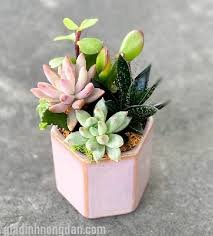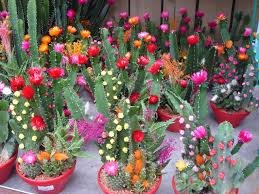
The Caja China, a popular Cuban-style roasting box, is a fantastic tool for cooking large cuts of meat, such as pork, beef, and poultry, in a way that preserves juiciness and flavor. Whether you’re using it for backyard barbecues or large family gatherings, the Caja China delivers excellent results every time. However, if your Caja China is made of metal, it’s important to be aware of one common enemy: rust.
Rust is a major concern for metal cooking equipment, as it can deteriorate the structure, affect cooking performance, and reduce the lifespan of your Caja China. Fortunately, with proper care and maintenance, you can prevent rust from forming on your Caja China and ensure it lasts for years. In this article, we’ll cover the causes of rust, as well as proven strategies and tips to keep your Caja China rust-free.
1. Understanding the Causes of Rust on Metal Caja China
Before we dive into prevention methods, it’s essential to understand why rust forms in the first place. Rust is the result of a chemical reaction between metal, oxygen, and moisture. When these three elements combine, the iron in the metal reacts with water or humidity, leading to the formation of iron oxide, commonly known as rust.
Several factors can accelerate rust formation on a Caja China, including:
- Exposure to Moisture: Whether it’s rain, humidity, or condensation, moisture is the primary cause of rust on metal surfaces.
- Temperature Fluctuations: Extreme changes in temperature can cause the metal to expand and contract, leading to tiny cracks where moisture can seep in and cause rust.
- Salt Exposure: If you live near the ocean or use salt in your barbecue, salt can hasten the rusting process by attracting moisture to the metal.
- Lack of Maintenance: Over time, if the Caja China is not cleaned and maintained properly, it can develop rust spots, especially in places where grease or food residue accumulates.
Now that you understand why rust forms, let’s move on to how you can prevent it.
2. Clean and Dry Your Caja China Thoroughly After Each Use
One of the most effective ways to prevent rust on your Caja China is to ensure it is cleaned and dried after every use. Food particles, grease, and moisture can create the perfect environment for rust to develop. Here are the steps you should follow to keep your Caja China in pristine condition:
a. Remove Residual Food and Grease
After cooking, allow your Caja China to cool down to a safe temperature. Open the box and remove any leftover food remnants, grease, and juice. This can be done by using a brush or scraper to remove any built-up debris. Make sure to get into all the nooks and crannies where grease may have accumulated.
b. Wash with Warm Soapy Water
Use warm water mixed with a mild detergent to wash the interior and exterior of the Caja China. Avoid using harsh chemicals or abrasive cleaners, as they can damage the metal surface. A sponge or soft cloth should be used to scrub the surfaces gently.
c. Dry Immediately
Once cleaned, dry your Caja China thoroughly using a dry cloth or towel. Ensure all areas are completely dry, especially the corners and seams where moisture can accumulate. If you live in a humid environment, you may want to place the Caja China under a fan or in the sun to help speed up the drying process.
3. Apply a Protective Coating to Prevent Moisture Exposure
One of the most effective ways to prevent rust from forming is by applying a protective layer to the metal surface. This layer acts as a barrier that prevents moisture from coming into direct contact with the metal.
a. Use High-Temperature Paint or Rust-Resistant Coatings
Rust-resistant paints and coatings are specifically designed for high-temperature cooking equipment. These coatings provide an extra layer of protection to prevent moisture from reaching the metal. When choosing a rust-resistant coating for your Caja China, ensure it’s food-safe and rated for high temperatures. Always follow the manufacturer’s instructions when applying the coating to avoid any issues during use.
b. Consider Oil-Based Coatings
Another option is to apply an oil-based coating to the metal surfaces. Vegetable oils, such as canola or flaxseed oil, can be applied lightly to the metal after cleaning. This method is similar to seasoning a cast-iron skillet, and it creates a non-stick surface that protects against rust and helps improve the flavor of the food.
To do this, apply a thin layer of oil to the surface, then heat the Caja China for 15-20 minutes at a low temperature to allow the oil to form a protective layer. This process should be repeated periodically to keep the metal well-seasoned.
4. Store Your Caja China in a Dry, Well-Ventilated Area
How and where you store your Caja China plays a significant role in preventing rust formation. Storing it improperly can expose it to moisture, which is a major factor in rust development. Here are a few tips for optimal storage:
a. Store in a Dry Location
If possible, store your Caja China indoors, away from any sources of moisture such as rain, humidity, or sprinklers. A shed, garage, or storage room is ideal for keeping your Caja China protected. If you must store it outside, ensure it’s covered with a weather-resistant tarp or protective cover.
b. Use a Ventilated Storage Area
Moisture can get trapped in non-ventilated areas, creating the perfect environment for rust to form. Ensure that your storage area is well-ventilated, allowing any trapped moisture to evaporate quickly. If your Caja China is stored outside, consider investing in a ventilated cover that allows air to circulate but keeps out rain and dust.
c. Avoid Storing in Direct Contact with the Ground
If you are storing your Caja China on the ground, make sure it’s elevated off the surface. This helps prevent moisture from being absorbed into the metal from the ground. Place it on a shelf or pallet to keep it away from direct contact with wet surfaces.
5. Use Rust Inhibitors for Extra Protection
If you live in an area with high humidity or salty air, you may want to consider applying a rust inhibitor for extra protection. These inhibitors can be sprayed onto the metal parts of your Caja China to form a barrier that prevents rust from forming.
a. Rust Inhibitor Sprays
There are various rust inhibitor sprays available in the market that are designed for high-temperature cooking equipment. These sprays can be applied after cleaning and drying the Caja China to provide an additional layer of protection.
b. DIY Rust Prevention Solutions
If you prefer a natural approach, you can create a simple DIY rust prevention solution. A mixture of baking soda and vinegar can be used to clean the metal and help prevent rust. Apply the mixture to the surface, then wipe it down with a clean cloth and allow it to dry completely before applying a protective coating.
6. Regularly Inspect Your Caja China for Signs of Rust
Even with all the preventive measures, it’s important to regularly inspect your Caja China for any early signs of rust. Early detection can help prevent minor rust spots from developing into larger, more significant problems.
a. Check for Rust Spots
Look for any small spots of rust on the surface of your Caja China. If you find any, address them immediately by scrubbing the area with a wire brush and applying a rust remover. After removing the rust, apply a protective coating to prevent it from returning.
b. Inspect the Interior and Exterior
Regularly inspect both the interior and exterior of your Caja China for any signs of wear, damage, or rust. Pay particular attention to areas where moisture may accumulate, such as the seams or corners of the box.
7. Consider Using a Rust-Resistant Material for Your Caja China
If you’re in the market for a new Caja China or considering an upgrade, look for options made from stainless steel or aluminum. These materials are naturally more resistant to rust and corrosion, making them easier to maintain over the long term. If your Caja China is currently made of a rust-prone material, consider investing in a rust-resistant liner or protective coating.
Conclusion
Rust is a common problem for metal cooking equipment, but with the right care and maintenance, you can prevent it from affecting your Caja China. By cleaning and drying it properly after each use, applying protective coatings, storing it in a dry and ventilated area, and inspecting it regularly for signs of rust, you can extend the lifespan of your Caja China and keep it performing at its best.
With these steps, your Caja China will continue to help you create delicious, perfectly roasted meals for years to come, without the worry of rust compromising its performance. Keep your Caja China well-maintained, and it will reward you with many seasons of flavorful cooking.









